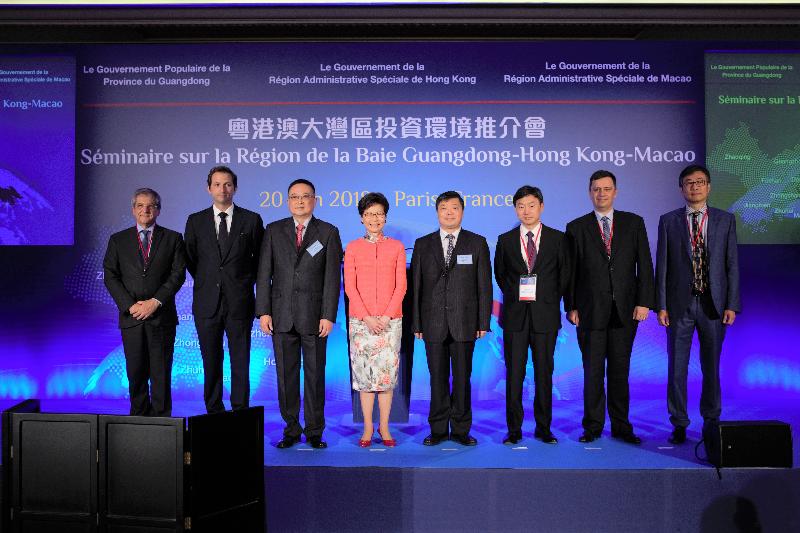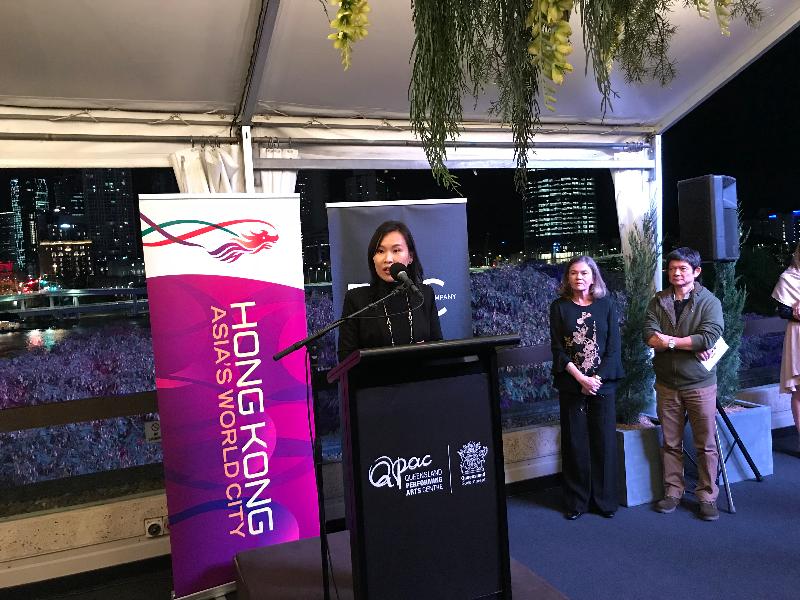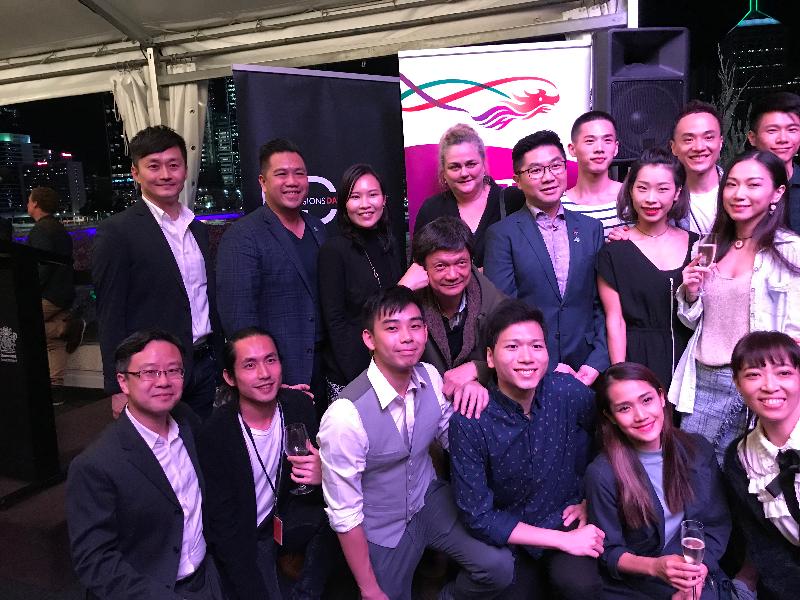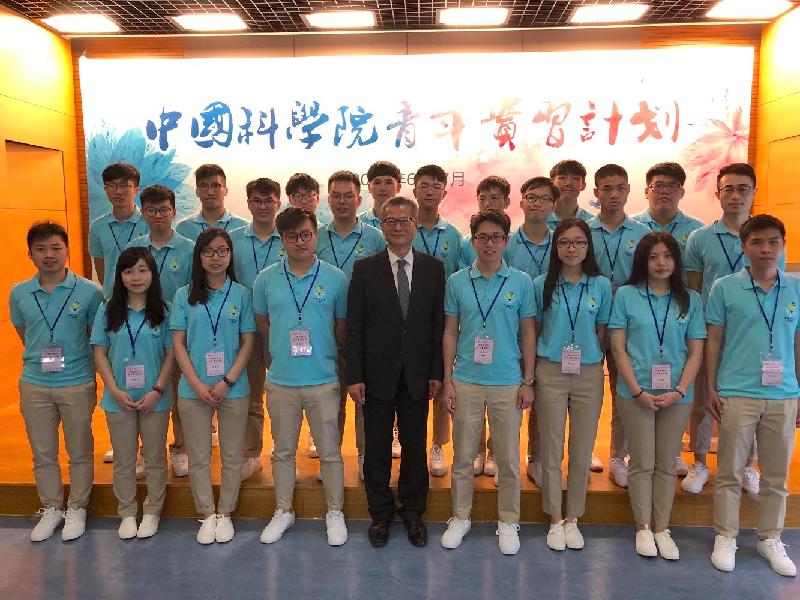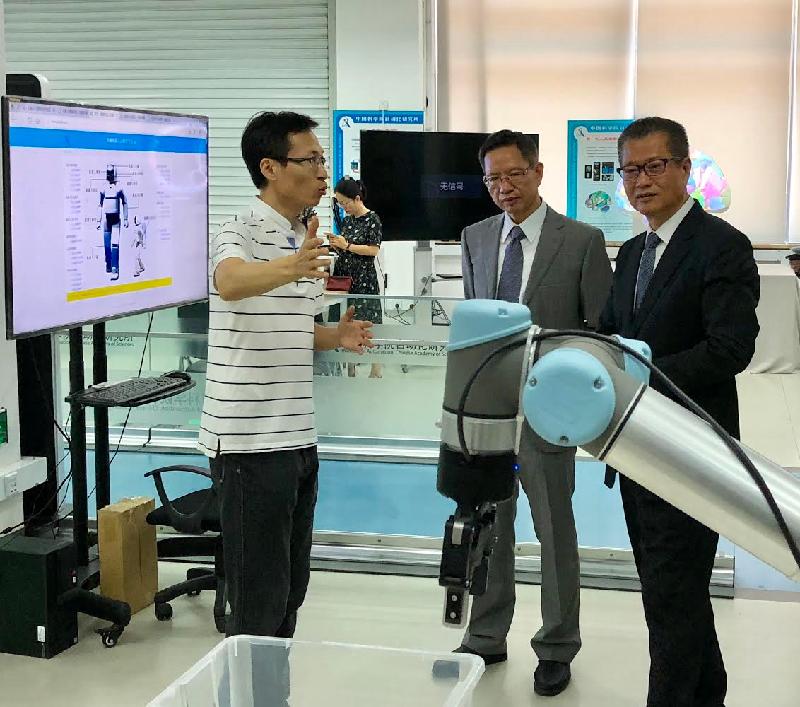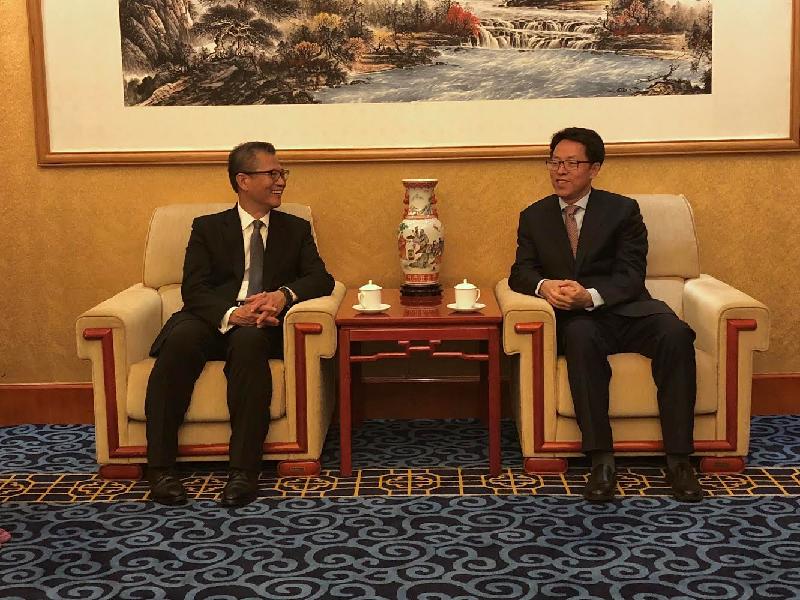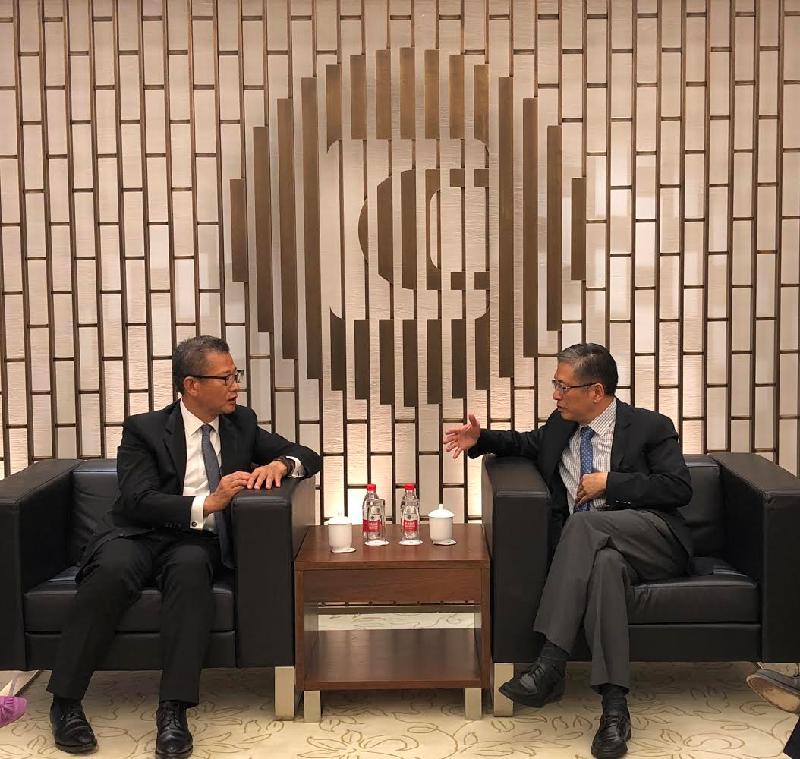Following is a question by the Hon Paul Tse and a written reply by the Secretary for Food and Health, Professor Sophia Chan, in the Legislative Council today (June 20):
Question:
According to the information from the Hong Kong Cancer Registry under the Hospital Authority (HA), breast cancer is the most common cancer among women in Hong Kong (with one in every 16 women developing breast cancer). In recent years, there has been an upward trend in the number of cases of women being diagnosed with breast cancer: 1 152 cases in 1993 rising by about three times to 3 900 cases in 2015 (i.e. 10 women were diagnosed with breast cancer each day on average). Breast cancer patients in Hong Kong are relatively younger than their overseas counterparts, with the lowest incidence age being 20. It has been reported that in the United States, a female terminal breast cancer patient whose cancer cells had spread to the liver and other organs was selected for participation in an immunotherapy trial (adoptive cell transfer (ACT) therapy), which enlisted her own "tumor-infiltrating lymphocytes" (TILs which contained T cells) to fight against the cancer, coupled with drug treatment which assisted her immune system in attacking cancer cells. Forty-two weeks later, no cancer cells could be found in her body and there was no relapse of cancer within two years. The same therapy was also very effective in treating two other patients suffering from terminal liver cancer and terminal colon cancer respectively. A doctor of the United States National Cancer Institute considered that the three cases had indicated that the aforesaid therapy would hopefully provide a blueprint for treating solid tumours in body organs (e.g. stomach cancers, oesophageal cancers, etc.). Regarding the prevention and treatment of breast cancers, will the Government inform this Council:
(1) whether it knows the number of patients diagnosed with breast cancer in each of the past three years and, among them, the number of those whose cancer had reached advanced and terminal stages when they were diagnosed;
(2) whether it knows, apart from palliative care, other more positive therapies for terminal breast cancer patients; the costs and efficacy of such therapies; whether there are drugs for treating terminal breast cancer in the Hospital Authority Drug Formulary at present; if so, of their prices;
(3) given that ACT therapy gives terminal breast cancer patients a ray of hope, coupled with the fact that its side effects are much milder than those of conventional therapies, such as chemotherapy and electrotherapy, whether the Government and the authorities will consider studying the introduction of this technique or developing it on their own initiatives, with a view to providing an additional option for those terminal breast cancer patients who volunteer to try new therapies;
(4) given that quite a number of breast cancer patients have relayed that oncologists and surgeons often have conflicting opinions, with the former mostly recommending that the patients should receive chemotherapy first and surgery to remove tumour should be performed only after the spread of cancer cells has been effectively controlled or the size of the tumour has reduced, while the latter mostly advocating surgical removal of the tumour first before chemotherapy or electrotherapy, thus leaving patients perplexed, of the measures put in place by the Government to assist the patients in making appropriate decisions after weighing the opinions of the two sides;
(5) as some oncology experts have pointed out that genetic testing technique, which has been implemented in overseas countries for 10 years, analyses the hazard of a tumour and the risk of relapse and can help patients determine whether it is suitable to receive chemotherapy and spend some $200,000 on it, but such genetic testing services are unavailable in public hospitals in Hong Kong so far, whether the Government knows the reasons for that; whether it will consider introducing such genetic testing services expeditiously; whether HA has assessed if the techniques used in Hong Kong for treating cancers were below international standards;
(6) given that earlier, the Government announced the injection of $50 billion for the development of innovation and technology, whether the Government will consider, in addressing the medical needs of the terminal breast cancer patients in Hong Kong, taking the initiative to invite the medical research institutes which intend to introduce ACT therapy to apply for research grants, with a view to meeting the critical and urgent needs of the patients; and
(7) whether the Government will, on the basis of the notion that prevention is better than cure, and making reference to UK's offer of breast screening services for its nationals and the successful example of the Colon Assessment Public-Private Partnership Programme launched by HA in 2016, offer non-means-tested free breast screening services for all women of the relevant age cohort in the territory; if so, of the details and the implementation timetable; if not, the reasons for that?
Reply:
President,
Having consulted the Innovation and Technology Bureau, my reply to the various parts of the question raised by the Hon Paul Tse is as follows:
(1) The Hong Kong Cancer Registry (HKCaR) of the Hospital Authority (HA) oversees cancer surveillance and assists in compiling and analysing data on cancer cases in the local population to facilitate the planning of relevant medical services. The HKCaR's statistics on the incidence and stage distribution of female breast cancer cases in Hong Kong from 2013 to 2015 are tabulated below:
| Year |
Stage I |
Stage II |
Stage III |
Stage IV |
Unstaged |
Total |
| 2013 |
1 098 |
1 277 |
528 |
262 |
359 |
3 524 |
| 2014 |
1 252 |
1 334 |
610 |
318 |
354 |
3 868 |
| 2015 |
1 255 |
1 327 |
635 |
277 |
406 |
3 900 |
(2) Cancer service provided by the HA is based on a coordinated cross-specialty (e.g. pathology, radiology, medicine, surgery, clinical oncology, palliative care) and cross-disciplinary service system, and is organised on a cluster basis. Doctors from different specialties (including oncology and surgery) work closely with each other to make appropriate treatment plans for patients according to their clinical conditions.
Generally speaking, terminal cancer patients need more support in the final stage of their lives owing to changes in their medical conditions and emotions. Such support includes in-patient service for functional disabilities, continuous care upon discharge from hospitals and psychosocial support to alleviate emotional disturbances. The palliative care service of the HA provides holistic care and support for patients suffering from life-threatening illnesses and their families to meet their physical, psychological, social and spiritual needs, so that the patients will be able to face death in a dignified and peaceful way.
Currently, the HA provides palliative care service in all its seven clusters. The scope of service includes in-patient service, out-patient service, day care service, home care service and bereavement service. With the aim of providing holistic care for patients, the HA has been providing appropriate palliative care under a comprehensive service model for terminally-ill patients and their families through a multi-disciplinary teams of professionals, including doctors, nurses, medical social workers, clinical psychologists, physiotherapists, occupational therapists, etc.
The HA will continue to regularly review the demand for various medical services and plan for the development of such services having regard to factors such as population growth and changes, advancement of medical technology and healthcare manpower, and will collaborate with community partners to better meet the needs of patients.
At present, there are different drugs in the HA Drug Formulary for treatment of terminal breast cancer. The table below sets out the information of the relevant drugs:
| Drug name |
Category |
Cost |
| Capecitabine |
General drug1 |
Standard fees and charges |
| Gemcitabine |
General drug |
Standard fees and charges |
| Vinorelbine |
Special drug2 |
Standard fees and charges |
| Doxorubicin Liposomal |
Self-financed item3 |
$15,207 for every four weeks |
| Eribulin |
Self-financed item |
$17,880 for every three weeks |
Note:
1. General drugs are drugs with well-established indications and cost-effectiveness which are available for general use as indicated by patients with relevant clinical indications. These drugs are provided at standard fees and charges in public hospitals and clinics.
2. Special drugs are drugs used under specific clinical conditions with specific specialist authorisation. These drugs are provided at standard fees and charges in public hospitals and clinics when prescribed under specific clinical conditions. Patients who do not meet the specified clinical conditions but choose to use these Special drugs are required to pay for them.
3. Self-financed items include drugs with preliminary medical evidence only, drugs with marginal benefits over available alternatives but at significantly higher costs, and lifestyle drugs. These drugs are not covered by standard fees and charges. Patients who choose to use these drugs are required to purchase these drugs at their own expense.
(3)&(5) The HA notices that immunotherapy with adoptive transfer of autologous tumour-infiltrating T lymphocytes, and checkpoint inhibitor pembrolizumab, is a proof of principle for the use of immunotherapy in metastatic breast cancer, but it is still experimental. Its long term efficacy and safety need to be confirmed in larger clinical trials before it could be applied more widely in clinical practice. In addition, not every patient is expected to be suitable or would benefit from the treatment. Similarly, the application of genetic testing technique to assess the risk of tumour relapse is yet to be confirmed. The HA will keep closely in view the development of medical technology. Moreover, it has an established mechanism under which experts study and review regularly the testing and treatment options for patients, and the latest development of clinical and scientific evidences of drugs, so that adjustments can be made as appropriate. During the process, factors such as scientific evidences, cost-effectiveness, opportunity cost, technological advancement and views of patient groups are taken into account.
(4) The HA has been providing appropriate services for cancer patients through its multi-specialty team of professionals specialised in pathology, radiology, medicine, surgery, clinical oncology and palliative care. For patients with complex breast cancer, cancer case managers co-ordinate communication within the multi-specialty team, while surgeons and clinical oncologists maintain communication through various channels including close collaboration at multi-disciplinary conferences, so as to make appropriate treatment arrangements for patients according to their conditions and wishes.
(6) The government has set aside over $50 billion in the 2018-19 Budget to promote the development of innovation and technology in Hong Kong. One of the initiatives is to establish research clusters on healthcare technologies and on artificial intelligence and robotics technologies in the Hong Kong Science Park. The research cluster on healthcare technologies aims to attract local, Mainland and overseas top universities, scientific research institutions and technology enterprises for conducting more research and development (R&D) projects on healthcare technologies. In addition, the Innovation and Technology Fund finances applied R&D projects that can contribute to industrial innovation and technologies upgrading, including biotechnology-related projects, which covers researches on new drugs and therapy for various diseases.
(7) The Cancer Expert Working Group on Cancer Prevention and Screening (CEWG) under the Government’s Cancer Coordinating Committee has kept abreast of the latest local and international scientific evidence on cancer prevention and screening, and conducted timely reviews to ensure the evidence-based recommendations that CEWG formulated are applicable to the local circumstances.
After considering the emerging scientific evidence, the CEWG considers that it is still unclear whether population-based mammography screening does more good than harm in local asymptomatic women. Therefore, the CEWG concludes that there is insufficient evidence to recommend for or against population-based mammography screening for asymptomatic women at average risk in Hong Kong. For women at increased risk (e.g. carriers of certain deleterious gene mutations, those with a family history of breast or ovarian cancer), they should seek doctors' assessment and advice before deciding whether they should undergo breast cancer screening.
Given the lack of justification from public health perspectives as supported by scientific evidence, the Government at present does not have plans to introduce a population-based mammography screening programme. The Government and the medical sector need to gather more research findings and data to explore whether it is appropriate to implement population-based breast cancer screening for asymptomatic women at average risk in Hong Kong. Before a conclusion is drawn, service providers should offer adequate explanation to women who are considering breast cancer screening regarding its benefits, harms and limitations in order to help them make an informed choice.
